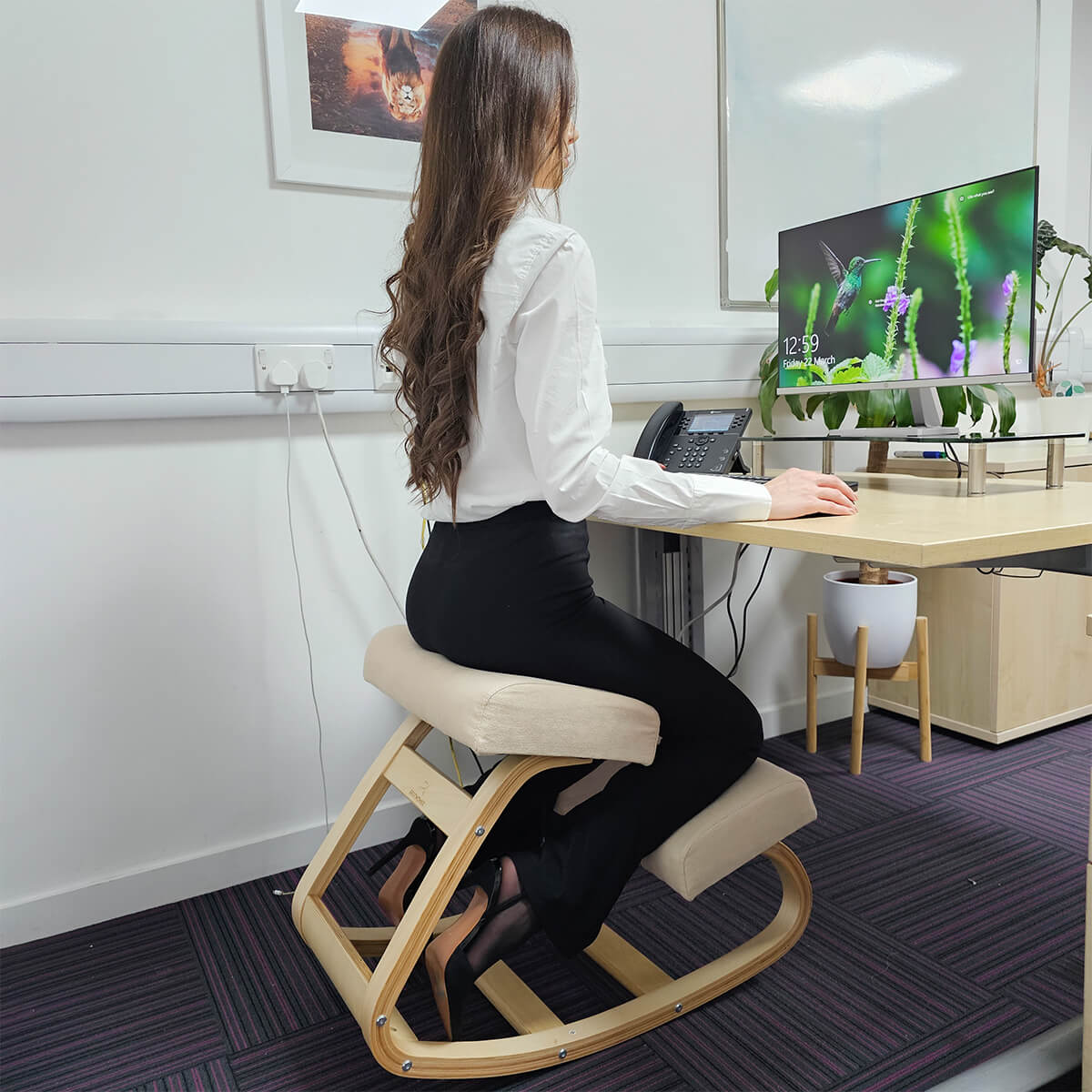We spend a significant portion of our lives sitting, especially at work. Unfortunately, the traditional office chair, with its flat seat and rigid backrest, has become a silent contributor to a range of health issues. While it may seem harmless at first glance, prolonged use of these chairs can lead to serious long-term health hazards, affecting both our physical and mental well-being.
The Physical Toll of Sitting in Traditional Office Chairs
One of the most common issues associated with traditional office chairs is poor posture. Unlike ergonomic chairs that support the natural curve of the spine, traditional chairs often encourage slouching and hunching. This poor posture can lead to chronic back pain, neck strain, and even conditions like herniated discs. According to a study published in the Journal of Physical Therapy Science, prolonged sitting in poor posture increases the risk of musculoskeletal disorders, particularly in the lower back and shoulders.
Another significant concern is the impact on circulation. Sitting for extended periods, especially in a chair that doesn’t promote movement or proper leg positioning, can reduce blood flow to the lower extremities. This can lead to swelling, varicose veins, and even increase the risk of deep vein thrombosis (DVT), a serious condition where blood clots form in the legs. A study in The Lancet found that prolonged sitting is associated with a higher risk of cardiovascular disease and overall mortality, regardless of physical activity levels.
Moreover, traditional chairs don’t encourage active sitting or movement. This sedentary behaviour contributes to the development of what has been termed "sitting disease," a range of health problems caused by too much sitting. Research in the American Journal of Public Health highlights that prolonged sitting increases the risk of obesity, type 2 diabetes, and metabolic syndrome, all of which have long-term health consequences.
The Mental and Productivity Costs
The physical discomfort caused by traditional office chairs can also take a toll on mental health and productivity. When you're in pain or discomfort, it’s difficult to focus on tasks, leading to reduced work efficiency and creativity. A study in the International Journal of Environmental Research and Public Health found that physical discomfort from prolonged sitting is directly linked to decreased cognitive function, which can severely impact work performance.
Chronic pain and discomfort can also lead to stress and anxiety, further exacerbating the mental toll of traditional office chairs. Over time, this can contribute to burnout, a state of emotional, physical, and mental exhaustion caused by prolonged stress, as noted in research published in the Journal of Occupational Health Psychology.
A Better Way Forward
Given the risks, it’s clear that traditional office chairs are not just uncomfortable; they pose a serious threat to long-term health and productivity. To counter these issues, many are turning to ergonomic seating solutions that promote better posture, movement, and overall comfort.
Ergonomic chairs, like kneeling chairs and sit-stand desks, are designed with the user’s health in mind, encouraging active sitting and reducing the strain on the spine and muscles. These chairs support a more natural posture and can significantly reduce the risk of the health issues associated with traditional office seating.
Conclusion
Your office chair plays a crucial role in your health, well-being, and productivity. By understanding the risks associated with traditional office chairs and making informed choices about your seating, you can protect your health and improve your work life. Investing in ergonomic solutions is not just about comfort—it's about safeguarding your long-term health and ensuring that you can work at your best every day.



Leave a comment
All comments are moderated before being published.
This site is protected by hCaptcha and the hCaptcha Privacy Policy and Terms of Service apply.